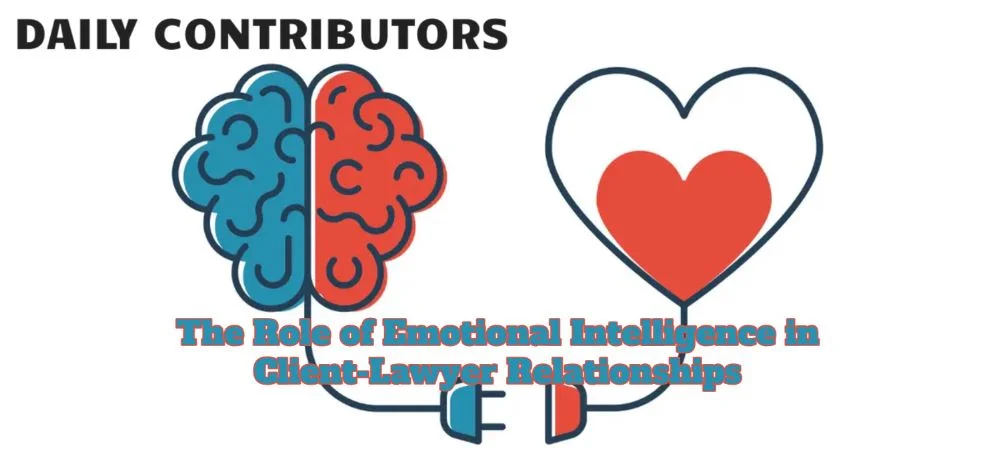In the legal profession, technical expertise is often seen as the key to success. However, Attorney Steve Mehr at Sweet James Accident Attorneys highlights that emotional intelligence has emerged as an equally critical factor, particularly in personal injury law, where client relationships are built on trust and understanding. By developing emotional intelligence, lawyers can significantly improve client experiences, creating stronger bonds and improving outcomes.
Table Of Contents
Emotional Intelligence in Legal Practice
Emotional intelligence is the ability to recognize, understand and manage both one’s emotions and the emotions of others. For lawyers, especially those in personal injury law, this skill is essential. Clients often come to them during stressful times, having experienced traumatic events that led to their legal needs. In these situations, clients need more than just legal advice; they seek compassion, reassurance and a sense of security.
Attorneys with skills in understanding emotions can respond appropriately to these emotional needs. They not only listen to the facts of the case but also to the unspoken emotions their clients may be experiencing. By doing so, they help clients feel heard and understood, which fosters trust and cooperation. In an industry where trust is paramount, this connection can be as valuable as legal expertise.
Building Trust Through Empathy
One of the core components of emotional intelligence is empathy—the ability to understand and share the feelings of others. In the context of personal injury law, empathy allows lawyers to put themselves in their client’s shoes, acknowledging the emotional and physical toll that an injury may have caused. Demonstrating empathy can help clients feel more comfortable sharing details about their situation, which in turn helps lawyers build stronger cases.
For many clients, the legal process can feel overwhelming and intimidating. Personal injury cases are often complicated and the stakes can be high. A lawyer who shows empathy can alleviate some of the anxiety clients feel, making them more likely to engage openly and fully throughout the process. This openness benefits both the client and the lawyer, as it leads to better communication and, ultimately, more effective representation.
Improving Communication and Conflict Resolution
Another aspect of emotional intelligence is effective communication. Lawyers with strong interpersonal skills can navigate difficult conversations with clients, whether it’s delivering unfavorable news or explaining complex legal concepts in a way that clients can easily understand. Clear, empathetic communication reassures clients that their lawyer is not only capable but also committed to helping them.
Moreover, personal injury cases can sometimes involve negotiation or conflict resolution, whether with insurance companies or opposing counsel. Lawyers with emotional intelligence can manage these situations calmly without letting their own emotions cloud their judgment. This ability to stay composed and focused on the client’s best interests can lead to more favorable outcomes, as it prevents unnecessary escalation of conflicts and keeps negotiations productive.
Attorney Steve Mehr shares that “At Sweet James, our mission is to revolutionize the legal industry.” While technology plays a significant role in enhancing operational efficiency, this type of empathy remains essential in maintaining personal connections with clients, ensuring they feel supported throughout the legal process. By fostering trust and empathy, lawyers can create a more comfortable environment for clients, which is especially crucial in emotionally charged personal injury cases.
Emotional Intelligence as a Trust-Building Tool
At it’s core, emotional intelligence is about building and maintaining relationships. In personal injury law, where clients are often vulnerable and in need of support, emotional intelligence can be the difference between a transactional relationship and one that truly serves the client’s needs. By cultivating emotional intelligence, lawyers can strengthen client-lawyer relationships, making clients feel more confident in their legal representation and more trusting of the process.
In the end, personal injury law is not just about winning cases—it’s about helping clients navigate some of the most difficult experiences of their lives. Lawyers who demonstrate emotional intelligence not only provide better service but also build lasting trust with their clients, enhancing the overall client experience in meaningful ways.


